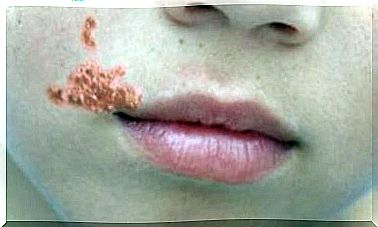Educating Without Threats

Educating without threats may be the only way to really correct your child’s behavior. The use of threats generally does the opposite. Instead of obeying, it often makes the child behave even worse.
Threats are not a useful education tool. They lead to power struggles, arguments and make the child feel more discouraged.
Furthermore, threatening the child takes away important learning opportunities. Especially if you use this strategy as the only way to get the little one to cooperate.
At this stage, everything the child does is seeking approval. Therefore, in the long run, threats will seriously affect self-esteem and everything related to your psycho-emotional health.
Children don’t like to feel threatened. Therefore, the only thing you will achieve with threats is to make the child more willing to distance themselves or provoke conflict situations.
When imposing some kind of penalty or consequence for some types of child’s behavior, it’s a good idea to make sure it’s something you can comply with.
Also, remember that irrational or disproportionate threat will not teach the child about the real consequences of their behavior.
Educating children without threats has benefits for the health and well-being of both parents and children. Furthermore, it allows for the creation of much healthier bonds and, thus, a more harmonious environment that enhances everyone’s qualities.

5 tips to educate without threats
Educating without threats is not an easy task for many parents. Many mothers and fathers find it difficult to assert themselves without using threat to get their child to comply. Below are some tips to educate without threats and achieve the desired goals:
1. Avoid power struggles
When parents don’t need their kids to behave a certain way to feel in charge, they don’t create a power struggle with them. In this way, the parents’ position of authority comes naturally.
Impulsive, and often irrational, thoughts and attitudes fuel discomfort, heightening drama, threats, and bribes. Instead of telling the child to do something, follow the whole process so that he can learn in practice.
2. Take control of your emotions
Being the reference in your child’s life starts with deciding not to let bad behavior make you lose your temper. When you need your child to do something, he will see the power he has to obey or not.
If you are able to handle your own emotions and reactions, you are more likely to be able to use logic to convince yourself of the importance of doing a certain task. This will make it easier to get children to cooperate naturally, with silent authority.
3. Be confident and secure
Being able to remain secure and confident will assert a position of authority and will reduce the child’s possible rebellious states. When the child sees parents as stable and confident figures, the need to feel cared for and protected is fulfilled, regardless of whether the child is more mischievous or not. In general, little ones are happiest when they have someone who handles them safely, without getting upset.

4. Discuss negative consequences in advance
The negative consequences of breaking the rules must be explained at the right time. Eliminate privileges or use logical consequences to help learn from mistakes.
Think about the punishment possibilities and think about which ones are most effective for the type of behavior. Remember that what works for one person doesn’t always work for another. Try to think of appropriate consequences for each type of behavior. That way, you also won’t feel guilty about putting it into practice.
5. Give warnings
Don’t be afraid to give warnings when your child has already received a certain amount of punishment for misbehavior. She will know the warnings are serious and will begin to comply.
It is recommended to give three warnings before punishing for bad behavior . Over time, the child tends to stop with one or two warnings.
Educating without threats is simpler than it sounds. You have to do your part and know how healthy it is to be firm with the child.
Remember that the little ones not only need to learn their duties, but also receive affection and understanding.









